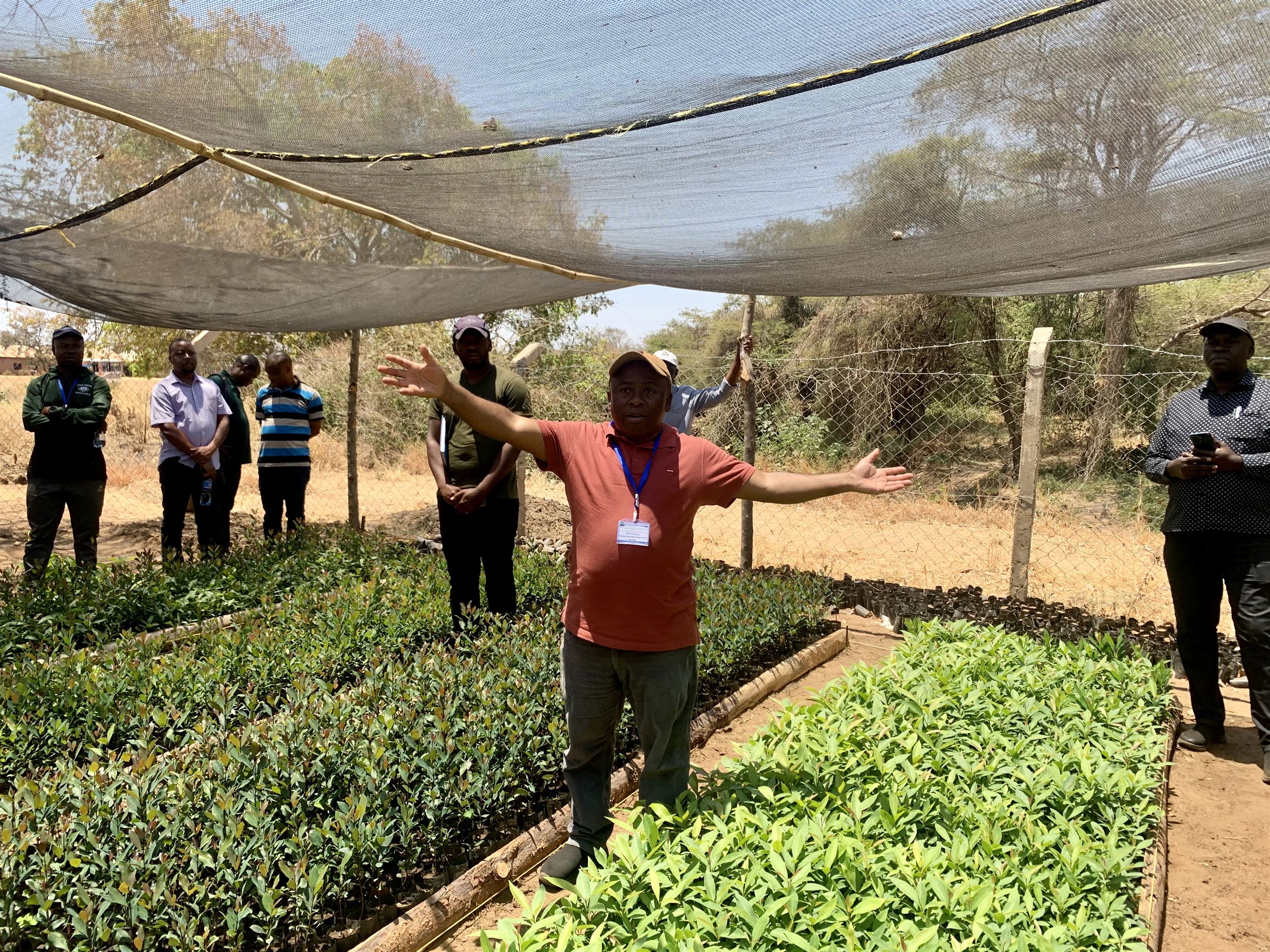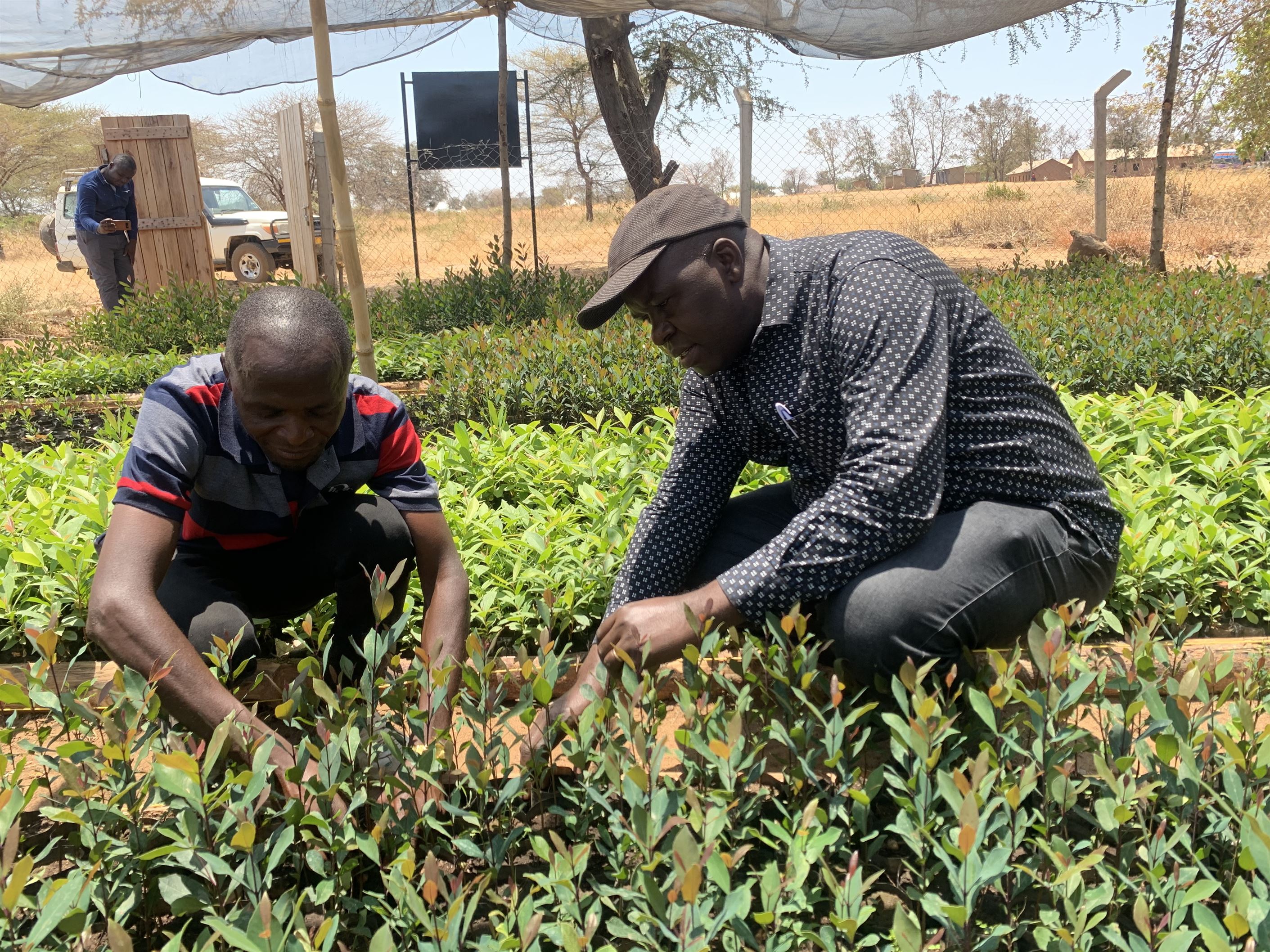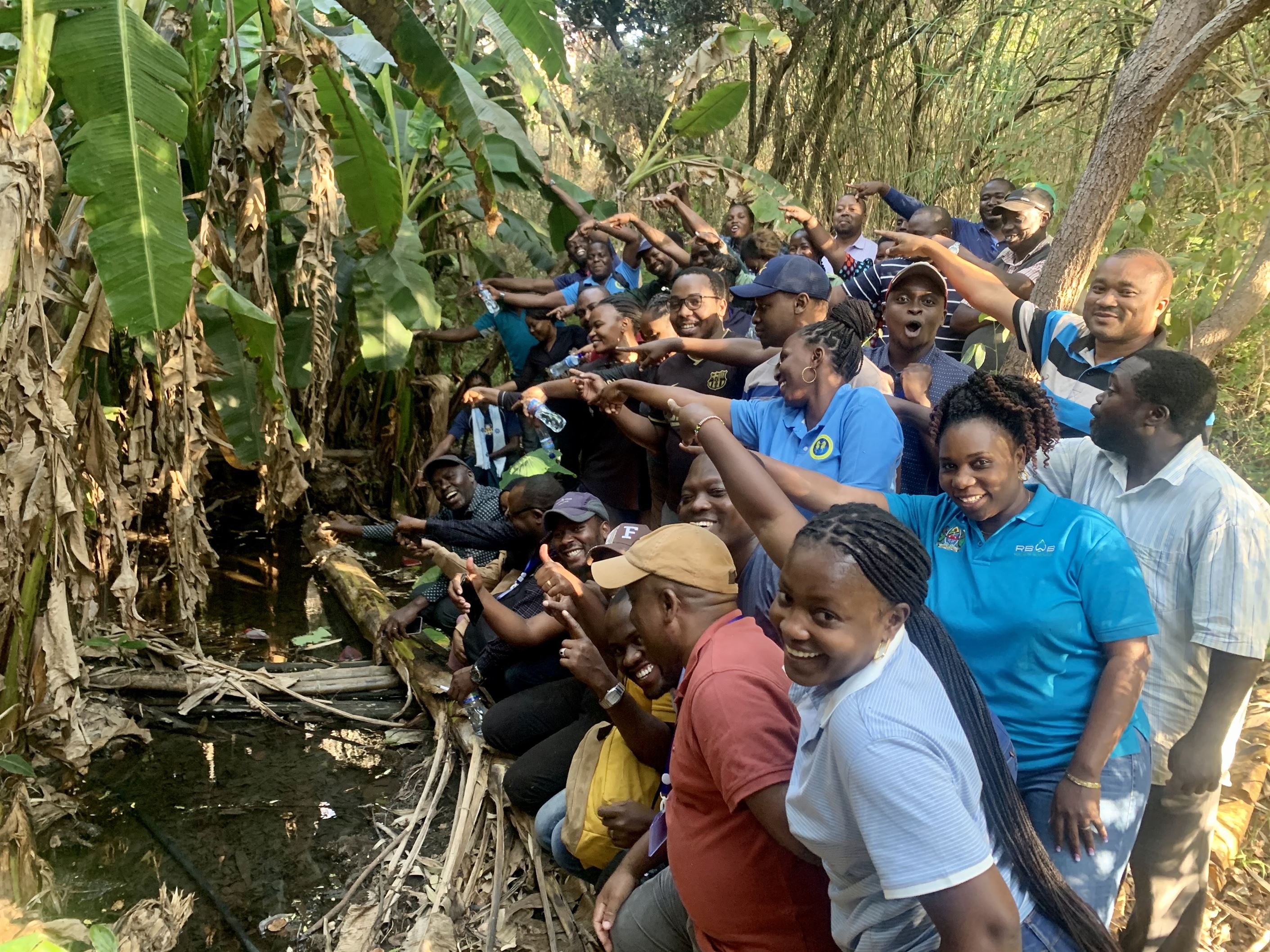Sokoine University of Agriculture (SUA) is continuing to make a significant contribution in efforts to restore natural vegetation to various water sources in the country where recently more than 50,000 tree seedlings friendly to water and river sources have been prepared with the aim of being planted on the water sources of Mbarali River through the “Sustainable Catchment Management through Enhanced Environmental Flow Assessment (EFLOWS)” project.

Lead researcher and EFLOWS Project Leader Prof. Japhet Kashaigili enjoying something on the day they visited the Water Friendly Tree Nursery located in Mdandu Ward, Wanging'ombe District, Njombe Region
Speaking about the initiative, Researcher and EFLOWS Project Coordinator from SUA Dr. Winfred Mbungu said that the seedlings have been planted in Mbarali District in Mbeya Region and Wanging'ombe District in Njombe Region where the Mbarali River begins and ends.
“Mbarali River starts in Njombe Region where its sources are but it flows and ends in the Mbarali District and its water enters the Ruaha Mkuu river where we have seen great damage in its sources and along the River due to extreme human activities, so as a project we should not only do research but also participate in restoring the natural vegetation in the whole area,” He said
He went on to explain that the seeds of the planted seedlings were taken from friendly trees that were found in those sources and along the river that the community has recommended and confirmed are water-friendly trees to ensure that all the trees planted are the right trees that do not damage the sources and banks of the rivers.

Dr. Winfred Mbungu explaining something to the participants of the International training to build the capacity of water assessment for the environment in the countries of the Western Indian Ocean region when they were in practical training
For his part, the EFLOWS Project Leader, Prof. Japhet Kashaigili explained that the tree planting exercise will be done in close collaboration with the Tanzania Forestry Agency (TFS) who will help provide expertise and management together with the Mbarali Water User Communities (JUWAMBA) the aim is for the exercise to be sustainable.
"We are planting these trees so that all the people who live along this river and its water sources see the importance of taking care of rivers in the sense that if the environment is well taken care of from where the river begins to where it ends, it will result in water flowing throughout the year but the river will also flow water which is safe for humans who use them along the way along with fish and other insects in the river and those in the sea where the river ends" explained Prof. Kashaigili
Prof. Kashaigili added that by doing the exercise in a practical way, it will help all citizens to know the right trees to plant in water sources and rivers, but also to build the ability to know the benefits and importance of planting trees and they hope to send fruit tree seedlings that are friendly to water so that they can plant also along the river, 60 meters away from the river.
"We are heading towards the end of the project because we have reached half of the time of our research, we continue to think of various ways to do through this project to help the community, and in the future through this work, the community can come to learn practically the issues of River Conservation and its sources in different areas of the country because the challenge of destruction is the cry that exists in different areas of the rivers in the country" explained Prof. Kashaigili
On the other hand, the Assistant Researcher of the EFLOWS Project, Mr. Nyemo Chilagane said that the nursery started to be prepared in April this year in collaboration with JUWAMBA by collecting the seeds of wild purple and purple trees along the river and then putting them in jars and starting serving it until now where it has reached the stage of being planted.

Hosea Kinyaga (left) showing Prof. Japhet Kashaigili (Right) the condition of the purple seedlings as they progress well before being taken to water sources for planting
And the Chairman of the Water User Association (MBUMTILU) in Wanging'ombe District, Njombe Region, Mr. Asheri Kilasi has thanked the researchers from SUA for facilitating the finding of the beautiful water-friendly tree nursery because they have been struggling to make such nurseries for a long time without success. .
He said that in the area that their community manages there are 176 river sources that contribute water to the Mbarali river but in those sources there are some that are in a bad condition due to being destroyed and there are some that are still in good condition but efforts are needed to maintain them.
"At the moment we have received education, all members of the community know the methods of planting nursery trees and trees suitable for planting in water sources and along rivers and we are ready for the exercise of going to plant them because it has reached the stage of planting, our main goal is to ensure that our river and its sources are covered by friendly trees and water flow throughout the year because we need water in various daily activities in our lives" explained Kilasi.
The work that is being done by the EFLOWS Project is part of achieving their goals of ensuring there is sustainable management of water catchments and enhancing the flow of water by taking care of the environment in the western region of the Indian Ocean.

Participants of the international training to build the capacity of Water Environmental Assessment in the countries of the Western Indian Ocean region enjoying arriving and seeing the source of the Mbarali River in Wanging'ombe District in Njombe Region while they were in practical training
Credits
Story: Amina Hezrone - SUAMEDIA
Photo: Calvin Gwabara - SUAMEDIA




